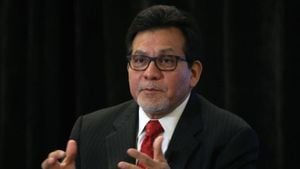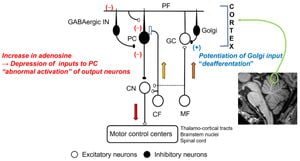Poland's economy is currently witnessing significant growth, with the influx of Ukrainian refugees playing a pivotal role. This situation has been heavily shaped by the geopolitical crisis following the Russian invasion of Ukraine, which began nearly 36 months ago. The combination of changing labor supply dynamics and shifting societal attitudes presents unique challenges and opportunities for Poland, situated as it is at the heart of this unprecedented humanitarian and economic transformation.
According to the Polish Border Guard, there were over 8.7 million border crossings from Ukraine to Poland recorded as of 2024—a decrease of 3% from the previous year. The overall border movement also fell by 885,000 year-on-year to 17.2 million crossings. Notably, the number of rejected entries for Ukrainian citizens surged to 15,800, marking a 21% increase compared to 2023. This shift indicates not only changing immigration patterns but also reflects heightened scrutiny and adjustments to Poland's migratory policies.
Currently, there are approximately 1.5 million Ukrainian citizens residing in Poland, 980,000 of whom are utilizing temporary protection. This number includes both those who had settled before the war and newcomers after February 24, 2022. The presence of Ukrainians is expected to significantly influence the Polish labor market, as experts estimate the potential for even more than one million Ukrainians to migrate to Poland seeking stability and new work opportunities after the war. Krzysztof Inglot, founder of Personnel Service, explains, "Currently, there are estimates of about 1.5-2 million Ukrainian citizens residing in Poland, but these numbers may change after the war is over."
The Polish economy has also seen remarkable performance recently, positioning itself as one of the leaders of economic growth within the European Union. Dawid Pachucki, the chief economist at PZU, notes the country achieved a real GDP growth rate of 1.3% quarter-on-quarter by the fourth quarter of 2024, making it the second highest growth rate among EU member states. Over the past year, the average GDP growth rate is expected to surpass levels seen previously, even amid challenges faced by major trading partners like Germany, which saw GDP shrink for two consecutive years.
The growth has been primarily driven by private consumption, which increased by 3.1% after dwelling on contraction previously. This expansion reflects not only resilience but also hints at the impact of external factors—like the influx of refugees onto the local economy. Despite some uncertainties, there has been positive growth reported concerning investments—fueled once again by external financing mechanisms such as the European Union’s recovery fund.
Despite the rising number of Ukrainian migrants, the sentiment of the Polish workforce toward their situation has varied. While 70.3% of Ukrainians express positive opinions about Poland and Poles, this is down by 13 percentage points from previous surveys. Interestingly, the perception among Polish citizens is on the decline as well; 18% have developed negative sentiments toward Ukrainians, which is up by 4 percentage points over the past year. This development continues to reflect the broader tensions around economic opportunity and job competition as both groups navigate this new labor environment together.
Still, many Polish entrepreneurs recognize the value Ukrainian workers add to their businesses, especially among larger firms where 55% report employing Ukrainian nationals. This number dropped from the previous year as businesses adjusted to market conditions but still signifies reliance on this labor source. Approximately 787,400 Ukrainians were registered with the Social Insurance Institution (ZUS) at the end of 2024, marking 66% of all foreigners covered by social insurance. Although this shows increased registration, the proportion of Ukrainians among all foreigners has decreased compared to pre-war levels, where the share was reported at 74%.
Looking forward, challenges remain as Poland braces for potential waves of migration from Ukrainians seeking new beginnings post-conflict. With many individuals potentially carrying trauma from their experiences, holistic support will be required beyond just employment, including social and psychological integration efforts. Krzysztof Inglot states, "Poland faces challenges linked to the influx of Ukrainians after the war, whom many will seek new beginnings. Some of these will be people with traumatic experiences requiring support not just on the job market but also on social and psychological integration."



